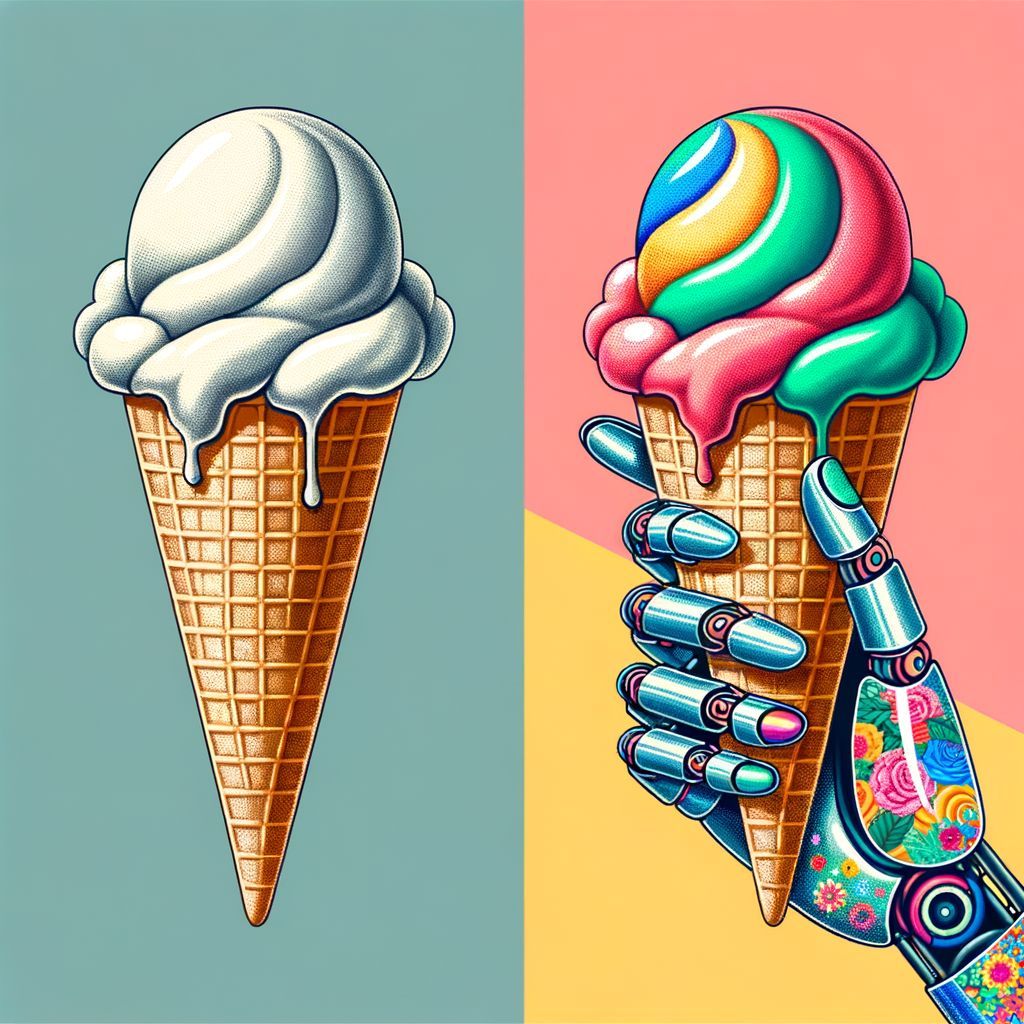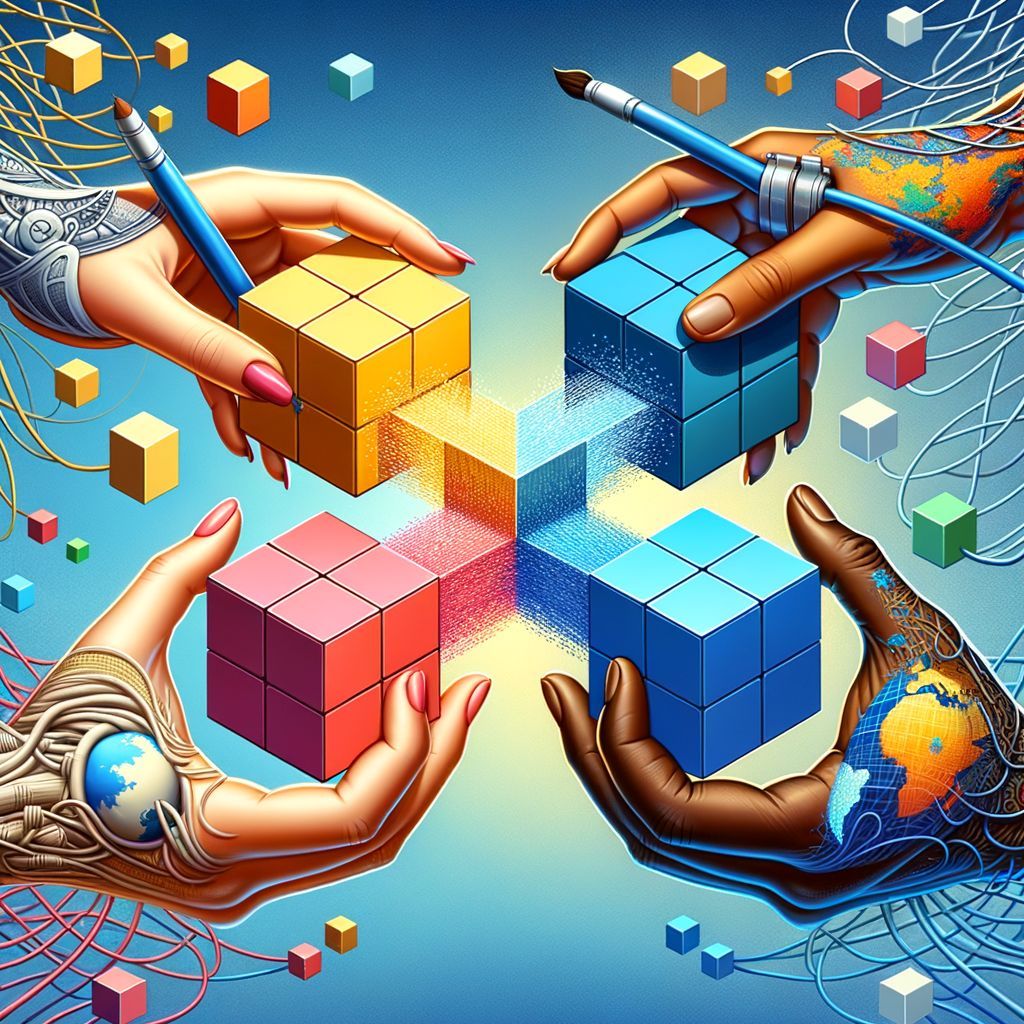

Image by DALL·E Pic: Midjourney
Editors' Note: Many Fast News images are stylised illustrations generated by Dall-E. Photorealism is not intended. View as early and evolving AI art!

AI in business,
Vanilla or innovative?
A question to ask.

Generative AI vanilla personality type: Boon or bane for business innovation?
Generative AI is programmed to think differently to how Gen Z and millennials think and could turn otherwise innovative businesses into vanilla businesses that think like Baby Boomers.
That's the view of Lyndal Spooner, founder and CEO of Fifth Dimension Consulting, who has voiced concerns over the growing use of Generative AI in businesses. Spooner argues while the technology is being leveraged to cut costs and simplify tasks, it may be turning innovative businesses into 'vanilla' enterprises with old-fashioned and decidedly less emotive thinking than what's expected from younger generations.
Generative AI, programmed to be factual, positive, and rational, contrasts with the more pessimistic and emotional nature of humans, particularly younger generations. Such a lack of human emotion and reflection of a Baby Boomer's personality type may not deliver the content or output needed for organisations to connect with their audiences and drive growth. As a result, Spooner warns the more businesses use Generative AI, the less innovative they may become, based on current usage trends.
"Given that Gen-AI lacks human emotion and is more reflective of the personality type of a baby boomer, is the technology really delivering the content or output that is really needed for the purposes of helping organisations to connect with their audiences and drive growth," Spooner argues.
"Before we start convincing ourselves that Gen-AI could be used to enhance an unlimited number of workflows and activities, we first should consider how Gen-AI's neural net and 'algorithm-based thinking' differs from human neuron-based thinking, and whether that limits or at least cautions us in the use and application of Gen-AI."
As Spooner explains, humans consist of different personality types but Gen-AI has only one profile.
"A simplified psychological framework can be applied to segment humans into four major personality types or ways of thinking and behaving," she continues. "The first dimension we use to segment people is whether you have more of an optimistic or pessimistic outlook. The second dimension is whether you are more conscientious or apathetic when faced with decisions.
"Like humans, Gen-AI also has its own dominant personality, based on the algorithms that drive it. Gen-AI's default personality and thinking is to be highly optimistic and conscientious. Gen-AI algorithms strive to be helpful and constructive, provide positive and actionable advice and ensure what it conveys is based on accurate, well researched and helpful information. It is also designed to pay attention to detail, deliver thoughtful analysis, be efficient and present complex ideas simply."
The result? Gen-AI is optimistic but most humans are not.
"While Gen-AI is marketed as the 'all purpose' solution, only one in three people claim to think and behave like Gen-AI," Spooner adds. "In fact, with rising anxiety, depression and pessimism in the world, less and less of us think the way Gen-AI has been programmed. Our research shows Gen-AI is more likely to think like a baby boomer than a digital native (Gen Y, Z, Alfa)."
Spooner recommends a hybrid approach involving humans in creative processes may be more effective than relying solely on Generative AI. This approach would ensure a wide range of opinions from real people on what their needs are and what motivates them, leading to broader creative platforms than the centralist view of Gen-AI.
"Maintaining a hybrid approach involving humans in your creative processes, ensuring you gain a wide range of opinions from real people on what their needs are and what motivates them, will give you broader creative platforms than the centralist view of Gen-AI," Spooner advises.










